
In a world that often emphasises the value of social connections, there’s an important distinction to be made between being alone and feeling lonely.
Many people associate solitude with a sense of isolation or sadness, but the truth is that being alone can be a fulfilling and rejuvenating experience. 😊
In this blog post, I will explore the nuances of being alone versus feeling lonely, understanding the importance of solitude, and embracing the positive aspects of both states.
Let’s get to it. 💕
The Difference Between Being Alone and Feeling Lonely:
Being Alone:
Being alone is a state of physical solitude, where you find yourself without the company of others. It can occur by choice or as a natural consequence of circumstances. Spending time alone provides an opportunity for self-reflection, relaxation, and personal growth.
It allows you to engage in activities that bring you joy, pursue hobbies, or simply enjoy a moment of peace. Being alone can be a deliberate choice, a time to recharge and connect with oneself. 🥰
Feeling Lonely:
Loneliness, on the other hand, is an emotional state that arises from a perceived lack of meaningful connections. It’s possible to feel lonely even in a crowded room if the connections are superficial or unfulfilling.
Loneliness is often characterised by a sense of emptiness, isolation, or a longing for deeper human connections. It’s a complex emotional experience that can impact mental and physical well-being. 😟
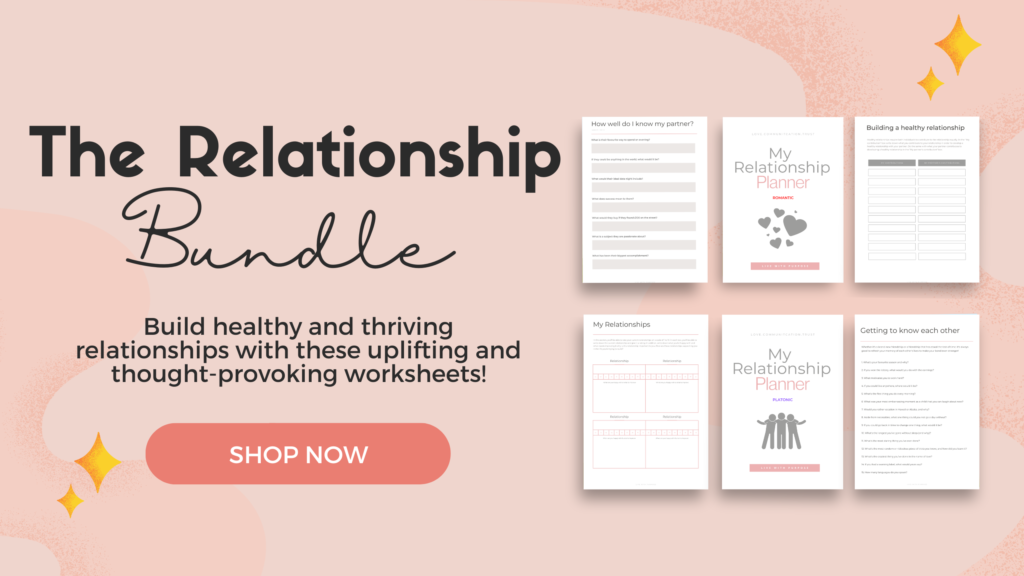
Embracing the Positive Aspects of Being Alone:
1. Self-Discovery:
Being alone provides an opportunity for self-discovery. It allows you to explore your thoughts, feelings, and interests without external influences. Use this time to reflect on your goals, values, and aspirations. Self-discovery is a crucial aspect of personal growth and can lead to a deeper understanding of oneself.
2. Independence:
Embracing solitude fosters independence. When you’re comfortable being alone, you become more self-reliant and less reliant on others for your happiness. This independence can empower you to make decisions based on your own needs and preferences, leading to a more authentic and fulfilling life. 🥰
3. Creativity:
Solitude often sparks creativity. When you’re alone with your thoughts, you have the mental space to generate new ideas, think critically, and engage in creative pursuits (yaay). Many artists, writers, and innovators find inspiration in moments of solitude, leading to the creation of meaningful and impactful work. 🎨
4. Rest and Rejuvenation:
Being alone allows for rest and rejuvenation. In a world filled with constant stimuli, taking time for solitude can be a form of self-care. It provides an opportunity to relax, recharge, and focus on activities that bring you peace and joy, contributing to overall well-being.
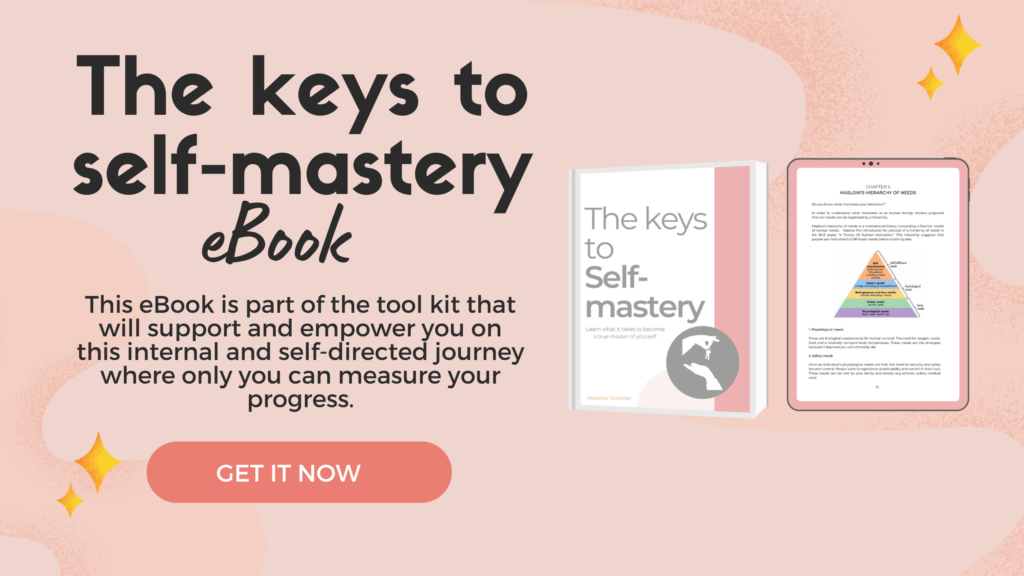
Addressing the Challenges of Feeling Lonely:
1. Cultivating Meaningful Connections:
If loneliness arises from a lack of meaningful connections, focus on cultivating relationships that nourish your soul. Seek out individuals who share your values and interests. Join clubs, organisations, or communities where you can meet like-minded people. Focus on getting yourself out there. Quality connections are often more fulfilling than a large social circle. 🫂
2. Volunteering and Giving Back:
Engaging in volunteer work or contributing to your community can alleviate feelings of loneliness. By helping others, you not only make a positive impact on the world but also connect with individuals who share a common purpose. Volunteering provides a sense of belonging and fulfillment.
3. Seeking Professional Support:
If loneliness becomes a persistent and overwhelming emotion, maybe consider seeking professional support. A therapist or counselor can provide guidance and a safe space to explore the root causes of loneliness. Addressing these issues with professional help can lead to a more fulfilling and connected life. 🫶
Finding Balance:
The key to a fulfilling life lies in finding a balance between being alone and fostering meaningful connections. Embrace solitude as a time for self-discovery, creativity, and rejuvenation. At the same time, actively cultivate relationships that bring joy and fulfillment. Recognise that both states are essential for a well-rounded and satisfying life. 💕
Conclusion
Being alone and feeling lonely are two distinct experiences, each with its own set of opportunities and challenges. Embracing solitude allows for self-discovery, independence, creativity, and rest. However, if loneliness creeps in, it’s crucial to address it by cultivating meaningful connections, volunteering, or seeking professional support. You are not alone. ❤️
Understanding the nuances between being alone and feeling lonely empowers you to navigate both states with intention and purpose. Ultimately, finding a balance between solitude and social connections contributes to a rich and fulfilling life. Embrace the positive aspects of being alone, foster meaningful connections, and savor the journey of self-discovery in this beautiful dance between solitude and companionship.
Pin this post for a reminder 📌 👇
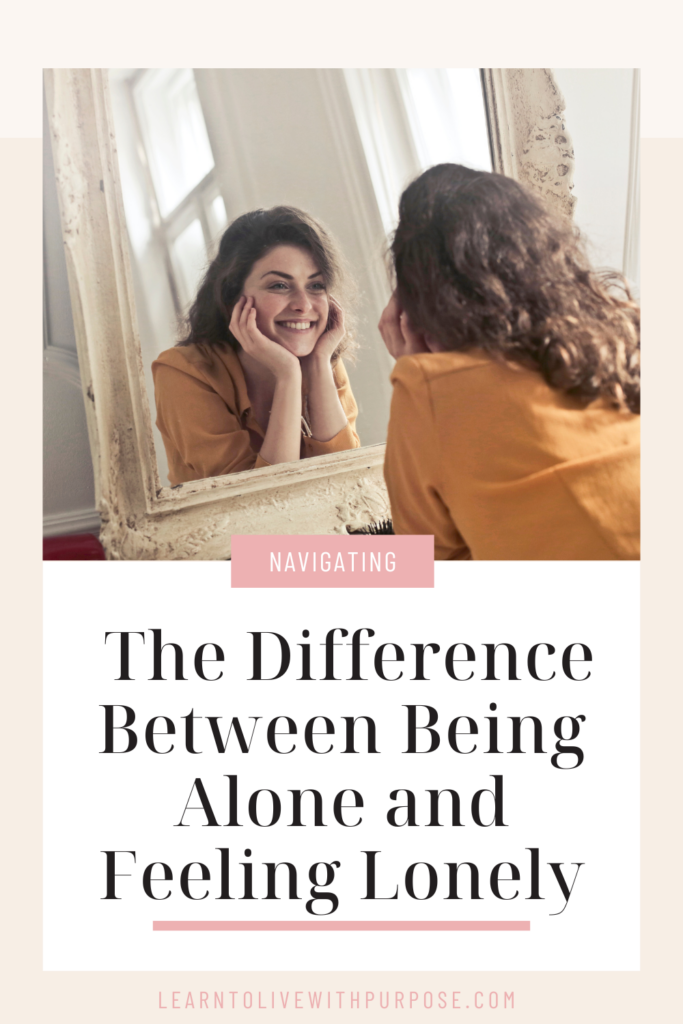
Related Blogs
Things to Say “No” to for you to Live a Happier Life
How to Stop Settling For Less Than You Deserve
How to Become the Best Version of Yourself: A Guide For 20-Somethings
We all want to succeed in life and reach our goals, but many of us are held back by a fear of failure. This fear can manifest itself in different ways: we may become anxious when faced with challenging tasks, procrastinate on important tasks, or even avoid taking risks altogether.
But the truth is that fear of failure is something that we can overcome, as these fears are formulated in our minds. By learning to be more mindful and developing the right strategies, we can start to unlock our potential and achieve our goals. 🫶
In this blog post, I’ll explore what the fear of failure is and why we have it, as well as share some strategies for overcoming your fear and unlocking your potential.
What is Fear of Failure?
Fear of failure is an emotional response that can arise when we are faced with a task or situation that we believe we may not be able to complete successfully. 😟
This fear can be triggered by a wide range of situations, from taking a test or starting a new job to making an important decision or taking on a new challenge.
When we feel that we may not be able to succeed in a certain task, we can experience a range of emotions including anxiety, fear, and even shame. This fear of failure can be so powerful that it can prevent us from taking risks, trying new things, and achieving our goals. 🙃
Recognising that failure is a normal and necessary part of personal growth and learning is essential. Learning from failures and using them as opportunities for improvement can help individuals cope with and eventually overcome this fear.
It’s important to remember that failure is not a reflection of a person’s worth, but rather a stepping stone on the path to success and personal development.

Reasons You Might Be Afraid of Failure
There are a number of reasons why we might be afraid of failure. One common reason is that we are afraid of disappointing others, especially if they have high expectations of us.
Another reason is that we may be worried about how we will be viewed by others if we fail. 👀
It is also possible that we may have experienced some form of failure in the past and feel that we are not capable of succeeding in the future.
We may also be afraid of failure because we believe that if we fail, we will not be able to move forward and achieve our goals.
Strategies to Overcome the Fear of Failure
Now that we have explored what fear of failure is and why we have it, it’s time to look at some strategies for overcoming it. Here are some tips for tackling your fear of failure and unlocking your potential:
Develop a Growth Mindset
One of the most effective ways to overcome the fear of failure is to develop a growth mindset. This involves looking at failure not as an end, but as an opportunity to learn and grow.
A growth mindset encourages us to take risks, embrace challenges, and look for ways to improve. It allows us to view failure as a learning experience and an opportunity to become better. 🤗
Take a look at our Personal Growth Bundle to find out more.
Visualise Success
Visualising success can be a powerful tool for overcoming fear of failure. Visualising ourselves succeeding can help us to be more confident, reduce anxiety, and take the first steps towards achieving our goals.
It is important to remember that visualising success does not mean that you will definitely succeed, but it can help you to build the confidence and motivation to take risks and move forward. 😀
To help with visualisation it would help to have a vision board. You can do this year by year or have an overview of the life you are trying to create. – Pinterest would be a great place to start with ideas.

Break Your Goals Into Smaller Steps
When we have a goal that we want to achieve, it can often seem like an insurmountable task. This can be overwhelming and can lead to fear of failure.
To help combat this fear, it is important to break your goals into smaller, achievable steps. This can help to make the task seem more manageable and reduce the fear of failure. 😊
Want to become a master at setting goals? Check out our mini-course: How to Set Goals and Achieve Them
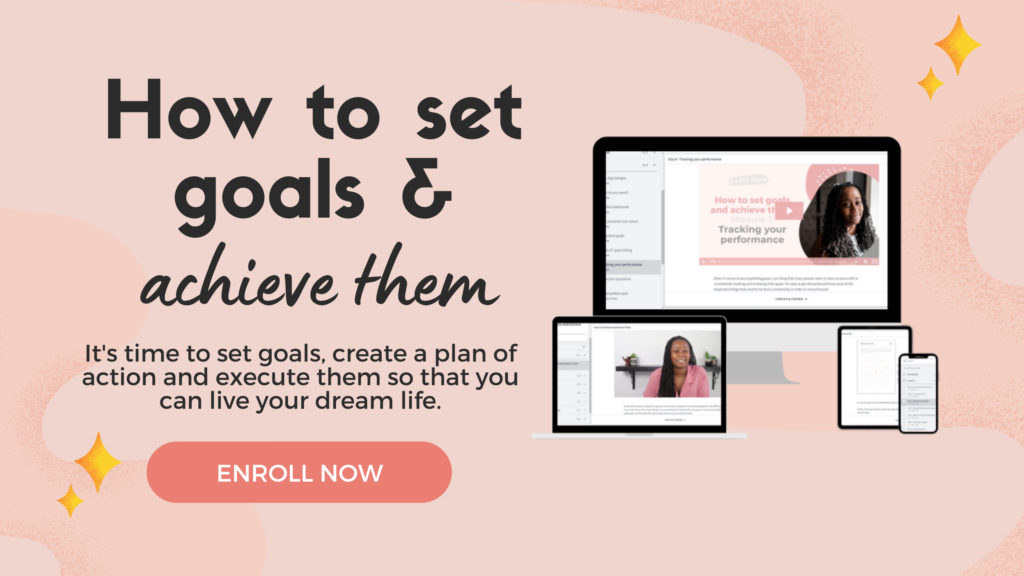
Accept That Failure is Part of the Process
It is important to remember that failure is part of the process of achieving your goals. Failure does not mean that you are not capable of achieving success, it either means that you have not found the right path yet or you just need to keep going. 🛣️
Don’t get me wrong, sometimes knowing when to quit and when to keep going can be hard. You have to think to yourself, am I going to regret this? or is this the best decision I can make for myself right now?
Accepting that failure is part of the process can help you to stay motivated and keep trying. It can also help to reduce the fear of failure and give you the confidence to take risks and try new things. 😊
Reach Out for Support
Reaching out for support can be a powerful tool for overcoming fear of failure. Talking to family, friends, and mentors can help to remind us that we are not alone and that there are people in our lives who are willing to help us. All you have to do is ask! 🗣️
Having a supportive network can also provide us with encouragement and motivation to keep going, even when we feel like giving up.

Celebrate Your Small Wins
It is important to celebrate our small wins and successes, no matter how small they may seem. Celebrating our successes can help to boost our confidence and remind us that we are capable of achieving our goals. Because you are! 🏆
It is also important to remember that failure does not define us; it is a part of the learning process. Acknowledging our successes, no matter how small, can help to keep us motivated and remind us that success is possible.
Conclusion – Unlocking Your Potential
Fear of failure can be a powerful emotion that can hold us back from achieving our goals. But with the right strategies, we can start to overcome our fear and unlock our potential.
By developing a growth mindset, visualising success, breaking our goals into smaller steps, accepting that failure is part of the process, reaching out for support, and celebrating our small wins, we can start to move forward and achieve our goals. 🎯
So don’t let your fear of failure stand in the way of your success. Start to take small steps today and unlock your potential!
Pin this post for a reminder 📌 👇

Related Blog
Things to Say “No” to for you to Live a Happier Life
How to Stop Settling For Less Than You Deserve
How to Become the Best Version of Yourself: A Guide For 20-Somethings
Life Audit and its Importance
Have you ever felt like you’re not moving forward in life? Like you’re stuck in a rut, and despite your best efforts, you can’t seem to break free? 🤔
If you’ve experienced this you’re not alone my friend. It’s a feeling that many of us grapple with at various points in our lives. This is where the concept of a life audit comes in, a strategic method of taking stock of your life and aligning it with your goals.
A life audit is essentially a comprehensive evaluation of your life’s current state. It involves examining your values, goals, accomplishments, and areas of improvement. 🧘
This process allows you to understand where you stand and what you need to do to get where you want to be. It’s not about judging yourself or feeling guilty about unaccomplished goals; it’s about understanding and strategising for your future.
The importance of a life audit cannot be overstated. It helps in identifying the disconnect between your aspirations and your current reality. 🙂
By doing so, it allows you to make necessary changes and adjustments to align your life with your goals. It’s about taking control of your life, rather than being controlled by it.

Defining Your Personal and Professional Goals
The first step in a life audit is defining your personal and professional goals. What do you want to achieve in your life? What’s your vision for your future? These are some of the questions that you need to answer.
It’s important to be specific and realistic when setting your goals. For instance, instead of saying “I want to be rich,” you might say “I want to save £1 million by the time I’m 50.” Then you can go deeper than that and describe how you’re going to do so. 🤔
Working your way backward will show you the steps that you will need to take in order to reach your goals.
Your goals should be a reflection of your values and passions. They should excite you and motivate you to take action. They should also be flexible, allowing room for change and growth. Remember, your goals are not set in stone; they can evolve as you do. 😊
Defining your goals is not just about creating a roadmap for your future; it’s about understanding who you are and what you want from life.
It’s about finding your purpose and pursuing it with determination and perseverance. ❤️
The Role of a Life Audit in Mastering Your Goals
A life audit plays a crucial role in mastering your goals. It provides a clear picture of your current situation, allowing you to understand where you are in relation to your goals.
It highlights the gaps and discrepancies in your life, making it easier to devise a plan of action. 💪
By conducting a life audit, you can identify the obstacles that are hindering your progress. These may include negative thought patterns, unhealthy relationships, or unproductive habits.
Once identified, you can work on overcoming these obstacles, paving the way for your success.
Furthermore, a life audit allows you to assess the effectiveness of your strategies and actions. Are you moving closer to your goals? Are your efforts yielding the desired results? If not, you can adjust your strategies and actions accordingly. 🤷

Simple Steps to Conduct a Life Audit
Conducting a life audit may seem daunting, but it doesn’t have to be. Here are some simple steps to guide you through the process:
Step 1: Define your values. What matters most to you in life? What are your core beliefs and principles?
Step 2: Identify your goals. What do you want to achieve in your personal and professional life? 🤔
Step 3: Evaluate your current situation. Where are you in relation to your goals? What’s working and what’s not?
Step 4: Identify the gaps and obstacles. What’s preventing you from achieving your goals? How can you overcome these challenges?
Step 5: Devise a plan of action. How will you move forward? What steps will you take to achieve your goals?
Step 6: Implement your plan. Take action and monitor your progress. Adjust your plan as necessary. 😄
How to Analyse the Results of a Life Audit
Analysing the results of a life audit is just as important as conducting it. This is where you get to see the fruits of your labor – the insights and revelations that will guide your journey towards your goals. 🏆
When analysing the results, focus on the gaps and discrepancies. These are the areas that need your attention.
Identify the steps you need to take to bridge these gaps. Remember, small steps can lead to big changes. 👣
Also, pay attention to the positives. What are you doing well? What are your strengths? Celebrate your wins, no matter how small they may be, they’re still wins.
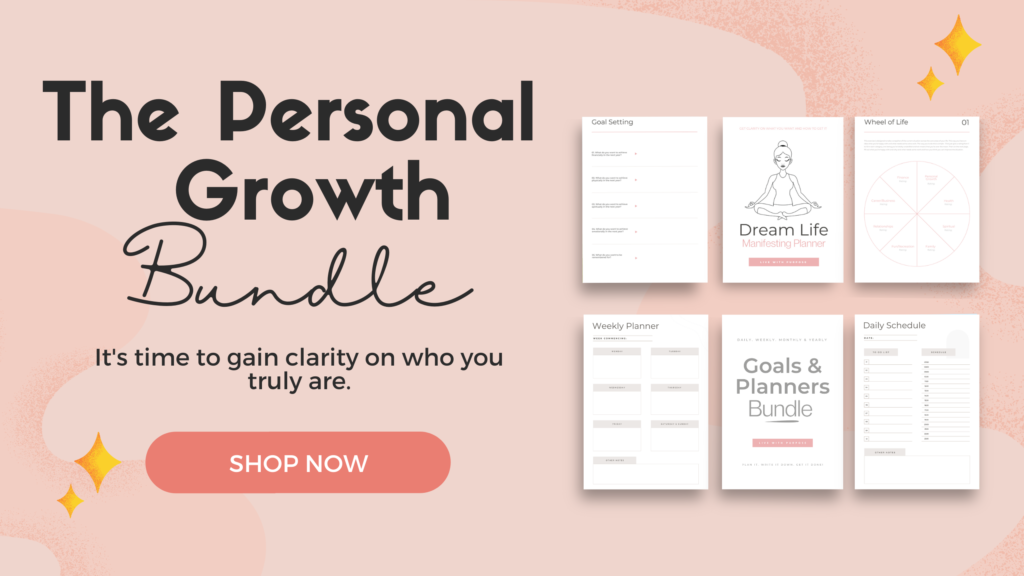
Case Study: Successful Life Audit and Goal Setting
Consider the case of Haley, a mid-level manager in a multinational company. She was feeling stuck in her career and wanted more from life. She decided to conduct a life audit.
Haley started by defining her values and identifying her goals. She realised that she valued personal growth and creativity, but her current job didn’t offer much room for either. Her goal was to have a career that allowed her to use her creative skills and grow professionally. 😄
Haley evaluated her current situation, identifying the gaps and obstacles. She realised that her lack of creative skills was the main obstacle. She devised a plan of action, which included taking online courses to enhance her skills. 🖥️
Haley implemented her plan and monitored her progress. She took the courses and started applying her newly acquired skills at work. His efforts paid off – she was promoted to a higher-level position that allowed her to use his creative skills.
Haley’s story illustrates the power of a life audit. It enables you to take control of your life and steer it in the direction of your dreams.
This is what I want for you! 💕
Overcoming Challenges During a Life Audit
Conducting a life audit can be challenging. It requires introspection, honesty, and courage. You may encounter resistance from within – fear of change, self-doubt, or procrastination.
However, remember that growth lies outside your comfort zone. Embrace the challenges and turn them into opportunities for growth. 🪴
It’s also important to be patient with yourself. Change takes time. Don’t beat yourself up if you don’t see immediate results. Keep moving forward, one step at a time. 🤗
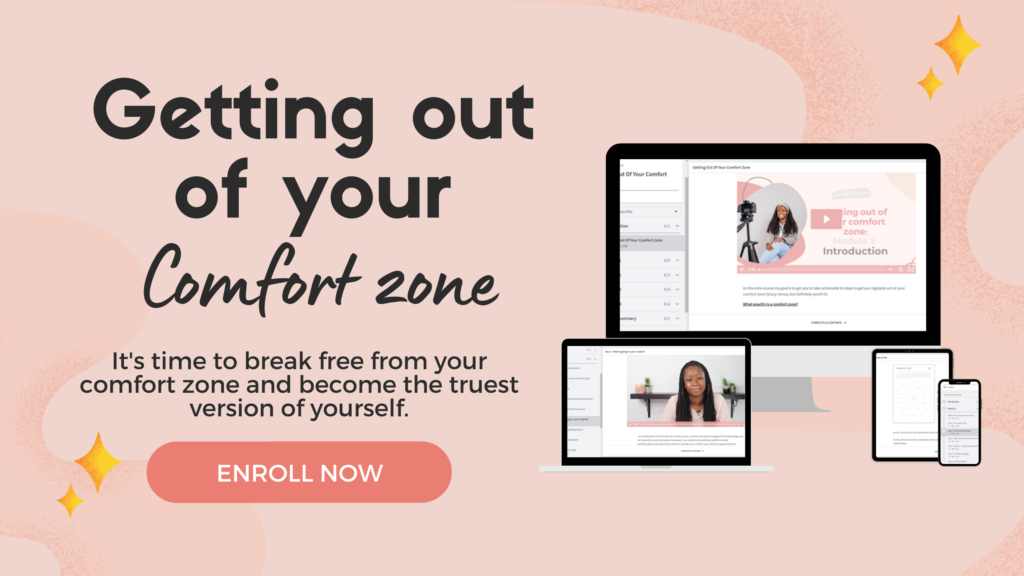
Tools and Resources for a Successful Life Audit
There are several tools and resources that can aid you in your life audit journey. Journaling is a powerful tool that can help you gain clarity and insight.
It allows you to express your thoughts and feelings, making sense of your experiences. 🙂
Online platforms like LifeTick and GoalsOnTrack provide tools and resources for goal setting and tracking. They can help you stay focused and motivated in your journey.
Books like “The Life Audit” by Caroline Righton and “The Desire Map” by Danielle LaPorte provide practical guidance on conducting a life audit. 🕮

How to Maintain Progress After a Life Audit
Maintaining progress after a life audit is crucial. It’s easy to fall back into old patterns and habits.
To avoid this, keep track of your progress. Celebrate your wins and learn from your mistakes. Stay focused on your goals and remind yourself of why they are important to you. 🥰
Remember that a life audit is not a one-time event; it’s an ongoing process. Regularly revisit your goals and adjust them as necessary. Stay open to change and growth.
Conclusion
Let’s face it, a life audit is a powerful tool that can transform your life. ❤️
It provides clarity, focus, and motivation, enabling you to master your goals. It’s about taking control of your life and steering it in the direction of your dreams.
So, are you ready to conduct your life audit?
The time to start is now. 🕗
Pin this post for a reminder 📌 👇

Related Blogs
The Top 10 Reasons Why People Don’t Reach Success
The Importance of Making Time for Yourself
As life gets busier, it becomes increasingly challenging to find time for oneself. However, it is an essential aspect of maintaining a balanced and healthy lifestyle. 🧘♀️
Making time for yourself allows for relaxation, reflection, and rejuvenation. It is an opportunity to disconnect from daily stresses and recharge your mental and emotional batteries.
Time for yourself is not a luxury, but a necessity. It is as crucial as eating a balanced diet or exercising regularly. Without it, we can become overwhelmed, stressed, and burnt out. In the long run, neglecting personal time can lead to serious health problems, both physical and psychological. 😬
The hustle and bustle of modern life often make us feel guilty about taking time out for ourselves. We are conditioned to think that being constantly busy is a sign of productivity and success.
However, this is a false belief. Making time for yourself is not a sign of laziness or selfishness. It is self-care, and it is crucial for your overall well-being and productivity.

Understanding the Concept of ‘Me Time’
‘Me Time’ is a term that is thrown around a lot these days. But what does it really mean? Simply put, ‘me time’ refers to the time set aside for doing things that you enjoy, that relax you, or that allow you to be alone with your thoughts. It is a time when you are not accountable to anyone else, not your boss, not your family, not your friends.
Just you. 👑
‘Me time’ can be anything from reading a book, going for a walk, practicing yoga, gardening, or simply sitting quietly with a cup of tea.
It is not about what you do; it is about being present and engaged in what you are doing. It is about being mindful and enjoying the moment.
‘Me time’ is not about escapism or avoiding responsibilities. It is about balancing your needs with those of others. It is about understanding that you cannot pour from an empty cup. You need to take care of yourself first to be able to take care of others. 👭
The Benefits of Making Time for Yourself
Making time for yourself has numerous benefits. First and foremost, it reduces stress. 🛀
When you take time out to do something you enjoy, your body releases endorphins – the ‘feel good’ hormones. This reduces stress levels and boosts your mood.
Secondly, making time for yourself increases productivity. When you take breaks, you allow your mind to rest and recharge. This increases your focus and concentration, making you more efficient and productive.
Thirdly, making time for yourself improves your relationships. When you are relaxed and happy, you are more likely to be patient and understanding with others. This improves your relationships and makes you a better partner, parent, and friend. 👪
Furthermore, making time for yourself boosts your self-esteem. When you take care of yourself, you send a message to your subconscious that you are worthy of care. This boosts your self-esteem and improves your overall mental health.

Strategies to Make Time for Yourself Amidst a Busy Schedule
Doing things for yourself amidst a busy schedule may seem impossible, but it is not. With a little planning and prioritisation, you can find pockets of time for yourself every day and I mean every day. 🤷♀️
The first strategy is to schedule your ‘me time’. Just like you schedule meetings or appointments, schedule time for yourself. Block out a specific time each day for self-care. This could be in the morning before everyone else wakes up, during lunch breaks, or in the evening after everyone else has gone to bed.
The second strategy is to delegate tasks. Often, we take on more than we can handle, leaving no time for ourselves. Just work, work, work. Learn to delegate tasks to others, be it at home or at work. This will free up some time for you.There’s no need for you to do everything ad burn yourself out. 🙃
The third strategy is to say “No”. You cannot do everything for everyone all the time. Learn to say no to tasks or commitments that are not essential or do not bring you joy.
FREE SELF-CARE BUNDLE
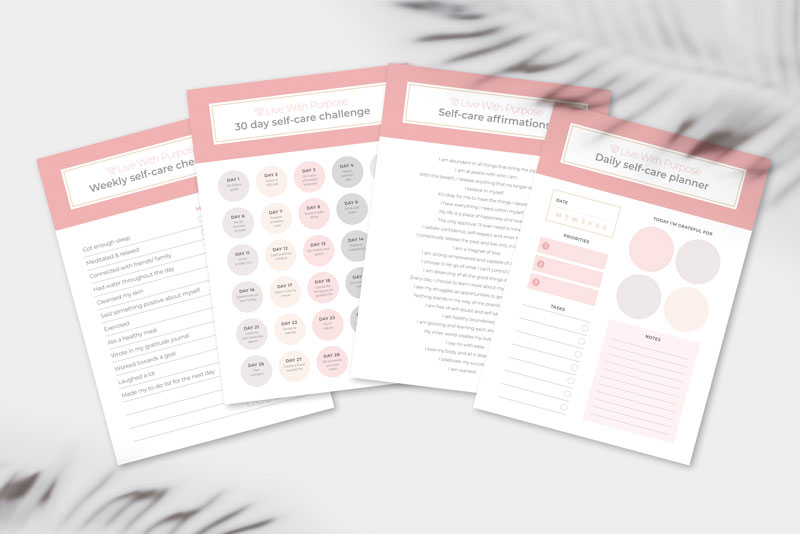
GRAB YOURSELF OUR FREE SELF-CARE BUNDLE!
It’s time to take some time out for yourself love! Check out this four-page bundle of self-care goodness that you can use to relax, refresh and rejuvenate. You deserve it sis.
Pop your info in and download your bundle now ❤️
Practical Tips to Prioritise ‘Me Time’
Prioritising ‘me time’ is crucial to making it a reality. We are all about action over here! 💕
Here are some practical tips to help you prioritize ‘me time’.
Firstly, identify what you enjoy doing. What activities relax you? What hobbies do you enjoy? Make a list and keep it handy.
Secondly, plan your week ahead. Identify pockets of free time and schedule your ‘me time’ activities. Be flexible and willing to adjust as necessary.
Thirdly, set boundaries. Let those around you know about your ‘me time’ and request their support and understanding. Make it clear that this time is non-negotiable.
Lastly, be consistent. Make ‘me time’ a regular part of your routine. Consistency is key to making it a habit.
Speaking of building habits why don’t you check out our Personal Growth Bundle? It does what it says on the tin. 😉

Successful Individuals Who Make Time for Themselves
There are many successful individuals who understand the importance of making time for themselves and have integrated it into their daily routines.
Take for example, Bill Gates, co-founder of Microsoft. He is known for taking a week off twice a year for ‘think weeks’. During this time, he disconnects from work and spends time alone, reading and thinking. 🧠
Similarly, Oprah Winfrey, a media mogul and philanthropist, starts her day with 20 minutes of meditation. She believes that this self-care practice sets the tone for the rest of the day and keeps her centered and balanced.
These examples show that making time for yourself is not a luxury, but a necessity for success, productivity, and well-being. 🙂
Overcoming Obstacles: Dealing with Guilt and Other Barriers
One of the major barriers to making time for yourself is guilt. Many people feel guilty about taking time out for themselves. They feel that they should be doing something ‘productive’ or ‘useful’ instead. 🙃
The key to overcoming this guilt is to change your mindset. Understand that making time for yourself is productive.
It’s productive because it recharges your batteries and makes you more efficient and effective in the long run.
Another barrier is time. Many people feel that they do not have enough time to spare for themselves. The key to overcoming this barrier is effective time management. Prioritise your tasks, delegate, and learn to say no to non-essential tasks. 🙅♀️
Your time is precious! You don’t want to look back and wish you spent more time focusing on your wants and needs.
Incorporating ‘Me Time’ into Your Daily Routine
Incorporating ‘me time’ into your daily routine can be achieved in several ways.
Firstly, wake up a little earlier and spend the first 30 minutes of your day doing something you enjoy. This could be reading, exercising, meditating, or simply sipping your coffee in peace. ☕
Secondly, you can incorporate ‘me time’ into your lunch break. Instead of working through your lunch break, take a walk, read a book, or listen to your favorite podcast.
Thirdly, you can end your day with ‘me time’. Spend the last 30 minutes before bedtime doing something relaxing, like spending time with family, taking a bath, or practicing yoga. 👨👩👧
Tools and Resources to Help You Make Time for Yourself
There are many tools and resources available! These include time management apps, self-care apps, books on self-care, and online courses on time management and self-care. 🛀
Time management apps, like Todoist or Toggl, can help you organise your tasks and manage your time more effectively.
Self-care apps, like Calm or Headspace, can guide you through meditation sessions, provide relaxing music, or suggest self-care activities. 🧘♀️
There are also many books and online courses available on the subject of self-care and time management. These can provide valuable insights and practical tips to help you make time for yourself.

Conclusion: It’s Time to Revolutionise Your Routine
In conclusion, making time for yourself is crucial for your overall well-being and productivity.
It is not a luxury, but a necessity. So, revolutionise your routine, make time for yourself, and see the difference it makes in your life. 😁
Remember, you are worthy of love and happiness. The journey to self-love starts with a single step, so take that step today and start loving yourself today. 💖
Pin this post for a reminder 📌 👇

Related Blog
Things to Say “No” to for you to Live a Happier Life
How to Stop Settling For Less Than You Deserve
How to Become the Best Version of Yourself: A Guide For 20-Somethings
Self-Confidence is one of the most important qualities that you can possess in life.
It’s essential for achieving success in any area of your life, from career to relationships and all the other core areas.
Unfortunately, many people lack the confidence needed to reach their goals. Fortunately, with the right knowledge and strategies, anyone can learn to build self-confidence and unleash their true potential.
Including you. 🙂
Here are seven tips for building self-confidence.
Building Self-Confidence
Self-confidence is a quality that everyone should strive for. It’s the key to unlocking your true potential and achieving success in life.
Unfortunately, many people struggle with low self-esteem, which can significantly impact their ability to reach their goals and navigate everyday life. 😔
Low self-confidence can lead to unhealthy habits, negative thinking, and missed opportunities.
Fortunately, with the right strategies and knowledge, anyone can learn to build self-confidence and reach their full potential.
Self-confidence is the belief in oneself and one’s abilities. It is the feeling of trust and security that comes from knowing that you are capable of achieving what you set out to do. 😄
People with high levels of self-confidence feel more empowered to take risks and make decisions even when it frightens them.
They also tend to be more successful in their endeavors and feel happier overall.
On the other hand, low self-confidence can lead to feelings of insecurity, fear, and doubt. 🙃
When someone has low self-confidence, they may feel as if they are not good enough or that they don’t measure up to others. This can lead to feelings of inadequacy and even depression.

GRAB YOURSELF OUR FREE SELF-CARE BUNDLE!
It’s time to take some time out for yourself love! Check out this four-page bundle of self-care goodness that you can use to relax, refresh and rejuvenate. You deserve it sis.
Pop your info in and download your bundle now ❤️
Understand Your True Potential
The first step to building self-confidence is to understand your true potential.
Many people limit themselves because they don’t realise their potential. Sometimes it’s internal factors, external or both that can influence what you believe about yourself. 🤔
It’s important to understand that you have the capacity to achieve anything you set your mind to. If you remind yourself of that every time you want to try something new or come out of your comfort zone you’d be amazed at what you can achieve. 😊
Once you understand your own potential, you’ll be able to set achievable goals and take steps to reach them. This will give you the confidence you need to move forward toward your dreams.
Benefits of having high self-confidence
Having high self-confidence can provide numerous benefits. It can improve your physical and mental health, increase your productivity, and help you develop healthier relationships. 🙂
It can also help you stay inspired and focused on achieving your goals.
With high levels of self-confidence, you are more likely to take risks, try new things, and follow your dreams. 💭
You won’t be afraid to put yourself out there and take on new challenges. You will also be less likely to be affected by the opinions of others and more likely to trust in yourself and your own decisions.
Sounds like an ideal life to me! 🤷♀️

Develop a Positive Mindset
Once you understand your true potential, it’s time to develop a positive mindset.
Negative thinking can lead to low self-confidence and stop you from living a life that you deserve. Instead of focusing on the things you can’t do, focus on the things you can do. Especially things that you do very well. 😅
A positive mindset will give you the confidence to take risks and try new things.
Practice Self-Compassion
Self-compassion is an essential part of building self-confidence. Many people are too hard on themselves, which can lead to low self-esteem and a lack of confidence. 🙁
It’s important to recognise that mistakes are part of the learning process and to be kind to yourself and not obsess over things you can’t control.
Instead of focusing on your shortcomings, focus on your strengths and acknowledge your successes. This will give you the confidence you need to keep moving forward. ➡️

Develop Healthy Habits
The next step to building self-confidence is to develop healthy habits.
Healthy habits can help you stay disciplined, focused, motivated, and productive which are all essential for reaching your goals.
Developing healthy habits like exercise, healthy eating, getting 7-9 hours of sleep and keeping up with good hygiene can help you feel better both physically and mentally. 🧠
This will give you the energy and confidence to take on any challenge.
Instead of blaming others or making excuses, acknowledge your mistakes and take responsibility for them. This will help you learn from your mistakes and make improvements in the future.
When you take responsibility for your actions, you are also more likely to follow through on things. You will be more likely to stick with a task until it is completed, rather than giving up when things get tough.
This will help you build self-confidence and trust in yourself. Because you’re telling yourself that no matter what happens, I’m going to go after what I want. 😌
One of the best ways to boost your self-confidence is to set realistic goals for yourself. Make sure that your goals are achievable so that you can see progress and feel a sense of accomplishment.
You can also break down large projects into smaller, manageable tasks so that you don’t become overwhelmed. 🤯
The key is to stay focused. Visualise your goals and remind yourself why you are working towards them. Whenever you feel discouraged, take a few moments to reflect on how far you have come and how much you have accomplished.
Challenge Yourself
In order to build self-confidence, it’s important to challenge yourself by pushing your boundaries. 👀
Don’t be afraid to take risks and try new things. This will help you grow and develop as a person. It will also give you a sense of accomplishment and pride, which can boost your confidence.
So don’t be afraid to step out of your comfort zone and try something new. 🤗
By taking care of yourself, you will be more likely to feel energized and motivated. You will also be better able to focus on your goals and take on new challenges. Taking care of yourself is an important step in building self-confidence.
RELATED: Getting out of your comfort zone mini-course

Surround Yourself with Positive People
Surrounding yourself with positive people can also help you build self-confidence. 👨👩👧
Positive people will provide you with the support and encouragement you need.
They will also help you stay focused, motivated and disciplined. So make sure to spend time with people who will help lift you up and make you feel confident about yourself, nothing less.
Try to limit your interactions with negative people and focus on spending time with those who will encourage you to be the best version of yourself. 😌
Celebrate Your Achievements
Finally, it’s important to celebrate your achievements, no matter how small.
Success is an important part of building self-confidence. So take some time to recognise and celebrate your successes and accomplishments.
This will give you the confidence to go after what you want. 👈
Celebrating your successes is an important part of building self-confidence. It helps to remind you that you are capable and that you are making progress in your life.
Progress = Happiness ❤️
Take some time to reflect on your successes and give yourself credit. You can also reward yourself with something special when you reach a goal or complete a task. Recognising your successes will help to boost your self-confidence and keep you motivated to venture onto other tasks.

Building Self-confidence – Conclusion
Building self-confidence is essential for achieving success in any area of your life. It’s not always easy, but with the right knowledge and strategies, anyone can learn to build self-confidence. 🤗
The seven tips outlined in this article will help you understand your true potential, develop a positive mindset, practice self-compassion, develop healthy habits, challenge yourself, surround yourself with positive people, and celebrate your achievements.
By following these tips, you can build your self-confidence unlock your true potential, and reach your goals. 🙌
Pin this post for a reminder 📌 👇

Related Blogs
The Top 10 Ways to Improve Your Productivity
Did you know that you can plan your best year ever by identifying what you want in your life?
As a millennial, we’ve grown up with the notion that now is the time for change. We starting to see new opportunities come our way as young individuals especially when it comes to businesses/careers, hobbies and making more mula.🤑
This means there will be more opportunities than ever before for people to start over and pursue their dreams. If you’re ready to take control of your life, read on for our ultimate guide on how to make this year your best year yet!

Set Your Goals
Setting goals for yourself, as well as for your life and career, is one of the most important aspects of planning your best year ever.
Not only will setting goals help to define your year, but it will also allow you to prioritize what is most important and what you want to achieve. This will allow you to focus your time and efforts on those things that matter most.
Setting goals can seem like a daunting task, especially if you believe them to be far-fetched. It can be easy to get lost in planning, work, and other aspects of daily life, forgetting to set goals for yourself.
It is important to keep goals simple and easy to understand. If you overcomplicate them or put too much into them, they may become overwhelming. 🥲
RELATED: How to set goals and achieve them mini-course
The “How to set goals and achieve them” mini-course is designed to get you from idea to execution with all the tools in-between.
Goal setting helps us to create and visualise our desired destination in life. Could you imagine your life without goals?
🤔What would motivate you to get out of bed?
🤔What would drive you to work on yourself?
🤔What would be the purpose of doing anything?
Sounds scary huh? But that’s not what you’re about. You’re about creating a life for yourself that you envision every day. You just need a little help getting there.
Throughout this mini-course, you will learn practical exercises that will provide you with all the essential tools you need to start making positive changes to your life.

Let me give you an overview of what you’re going to learn:
Module 1: Small steps big changes
What small actions can you take every day that will help you complete your goals faster and more efficiently? Sign in to find out more 😉
Module 2: Small steps big changes. – implementation week
Put what you’ve learned from module 1 into action by implementing these small changes into your day so that these small actions can turn into daily habits.
Module 3: Daily routine
Learn how to create a morning, afternoon and evening routine so that you have an intentional plan on how to turn your dreams into reality.
Module 4: Daily routine implementation week
Let’s see how your daily routine works out in the real world.
Are you excited as I am right now? (ahhhh) 😀
Get the complete rundown and enroll in the mini-course by clicking the button below
Okay, now let’s get back to the rest of this blog.
Network, Network, Network!
It’s important to remember that networking is not only about meeting people you have never met before and trying to figure out how you could work with them.
It can also be about meeting people you already know, who have similar goals and aspirations as you do. Whether it’s a professional networking group you belong to or a community network of people around a common interest, networking is a great way to meet people and make connections. 😄
Networking can take many forms, so keep in mind what works best for you. Some people prefer to attend organized networking events, others like to make connections online.
Networking can help you find new opportunities, meet people in positions of influence, and it can even lead to a new job or new opportunities for yourself. 💼
Whether you make business/career connections or friends for life. Networking is a great way to put yourself out there and gain valuable relationships.
RELATED: What does success mean to you? Take our quiz here
Have a Planning Day
If you have not set any goals for your year, it’s probably time to get started on it. 😂
All of this planning takes time and energy, and there is no better way to spend it than on yourself. Today, schedule an hour in your day just for yourself.
Spend this hour doing whatever makes you feel most relaxed, keeping in mind that you are planning your best year ever. You may want to try a new hobby, listen to some audiobooks, or even meditate. 🧘♀️
Whatever your preferred method may be, make sure to keep this hour in its entirety.
RELATED: Check out our Goals & Planner Bundle

De-Stressing & Unplug
If you find yourself constantly stressed and overworked, it may be time to take a step back and look at your daily routine.
Are there any aspects of your life that you could simplify or remove from your schedule? There are many stressful aspects of daily life that can affect you, such as work, school, family, money, and health. 👩⚕️
In order to have a healthy happy day you need to spend time on something that makes you feel happy and content, such as taking a nap, doing solo activities, listening to your favorite music, or reading a book. 📖
If you find that you’re suffering from a high level of stress and anxiety, it’s time to take a step back and re-evaluate your daily schedule and see what can be amended to make your life that little bit easier.
Exercise Regularly
Your health is the most important thing in the world. It can affect everything from your mood to how long you live. 😶
If you don’t exercise regularly, you’re setting yourself up for poor health and probably some aches and pains. It’s important to exercise regularly, and there are many ways to do so.
Here are a few:
👉Go to the gym (alone or with a friend)
👉Get outside and walk while listening to your favorite music
👉Do a couple of laps in the swimming pool
👉Host a dance party
👉Try Boxercise
Whatever your preferred method may be, make sure to keep it up. Regular exercise can boost your energy levels, help you sleep better, and even help you to lose weight.
It’s important to keep in mind that your body changes over time, so it’s important to keep up with your exercise routine no matter how old you get.

Eat Healthy & Make Time for Shows and Travels
Your diet is one of the most important aspects of planning your best year ever. Eating healthy and staying away/limiting junk food will give you energy and help to maintain a healthy weight. 💪
It’s important to make time in your daily schedule for a healthy meal, or at least a snack, and for water intake. Healthy eating can boost your energy levels, keep you healthy, and help to maintain a good mood.
It can also help to keep you focused and provide you with the nutrients to stay focused on your goals and ambitions.
It’s also important to make time for fun, exciting activities in your life.
Whether it’s going to a sporting event, taking a trip with your friends, or just going out for dinner and drinks. Life is for living, go and enjoy what you love. 💕
Find a Job you Love or Learn a New Skill
Having a job that you love and are passionate about will allow you to spend more time doing the things that you enjoy and are good at.
For the majority of people, they spend most of their day at work. Why not make it meaningful? 🤷♀️
If you love your job and have no issues with it then why don’t you pick up a new hobby or skill? No matter how old you are you should never stop learning. What’s the first thing that comes to your mind when you think about accepting the challenge of taking up a new skill? – Whatever it is; begin. 🙂

Are you ready to plan your year?
It’s important to remember that planning your best year ever is not something that will happen overnight.
It takes time, effort, and dedication to make things happen. Even if you feel like you don’t have enough time in your day, try to find a few minutes where you can take a break and relax. 🛀
This can be during your lunch break, while you’re waiting in line, or when you’re simply taking a break. Make sure to make time for the things that really matter and make you happy, and planning your best year will be one step closer to reality. ❤️
Pin this post for a reminder 📌 👇

Related Blogs
The Power of Self-Discipline & Why You Should Have It
Everything You Need to Know About Habits
5 Ways to Self-Mastery: The Self-Efficient Lifestyle
In your 20s, it’s all about finding yourself. By the time you hit 30, you should have a good idea of who you are and where you want to go in life. But what about the weird years in between? 😬
Where do you find confidence, learn how to love yourself, gain friends for life, and generally become an awesome human being? As we grow up, we tend to get more focused on our careers and friends than on our personal development.
However, these are arguably some of the most formative years of your life. If you don’t make a conscious effort to grow as a person now, it will take much longer in the future as you’re more likely to be dead set in your ways whether they are right or wrong.
If you’re ready to learn how to become the best version of yourself you’ve come to the right place, my friend. Let the reading commence. 😄
Acknowledge your imperfections
We all have things we’d like to change about ourselves. Maybe you’re not happy with your weight, or you’re frustrated with your lack of social life, or you’re always struggling to find time to keep up with your passions.
The truth is, you can’t change everything about yourself – you’re human, after all. Nor should you. By trying to change too much about yourself (especially in a short amount of time), you’re likely to end up with a highly unstable personality. 🙃
In your 20s, it’s essential to embrace your imperfections because you are still growing as a person. In fact, you can learn a lot from your flaws: Try your best to understand why you do the things you do and how you do them. Whether it’s something you’ve grown up with or adopted from peers.
Sometimes the simplest way to change an imperfection is to acknowledge you have one, understand the source of it then make adequate changes to become a better person.
The only place where you can start your journey is from where you are right this moment. Embrace that fact and start to formulate a plan. You’ve got this. 😌

Be grateful for everything you have
Picture someone who has absolutely nothing. Now, picture someone who has it all. Yes, there are people out there who have nothing, and there are people out there who have more than they could ever dream of. You’re probably somewhere in the middle, but do you even realize how lucky you are? 🥰
Always remember to stop and reflect to notice how far you have come in your life. Look at where you are, who you are, and what you have.
If you feel like you’re missing something, try to find a way to add it to your life, rather than wishing things were different. Be grateful for the path that brought you to where you are today.
RELATED: Take your gratitude to the next step with these 👉 Gratitude Journal Templates
Develop a healthy body and mind
Yes, you’re in your 20s, but that doesn’t mean you don’t have to think about your health. In fact, now is the perfect time to get into good habits, as you’re likely to retain them for the rest of your life.
A healthy diet, regular exercise, and plenty of sleep are the foundations for a happy, productive life.
Starting now will leave you with less to catch up on when you’re older. Healthy eating doesn’t have to be boring: there are lots of ways to make healthy food interesting. If you have a pretty unhealthy diet, start experimenting with new ways to cook and eat.
Exercise doesn’t have to feel like a chore – you can make it fun by trying out lots of different classes and activities. Just make sure you’re not overdoing it: overexertion will probably age you faster and put you at risk of injury.
Do you struggle with anxiety when it comes to working out in front of people? Check out this blog post by Melanie on 10 Tips for Managing Anxiety at the Gym
RELATED: Ready to prioritise your health? Check out our health bundle here 👉 Health Bundle
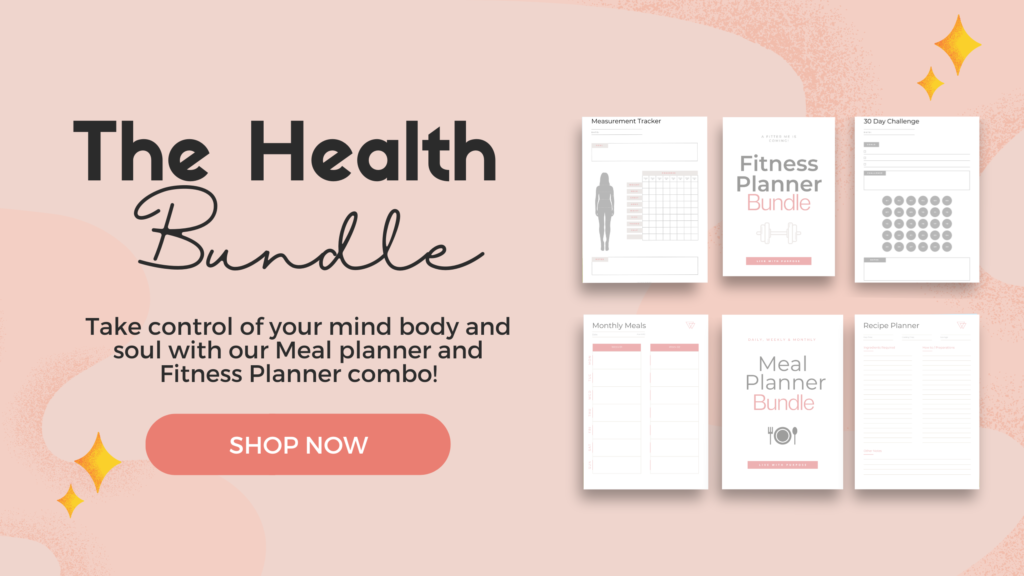
Learn from the people around you
As you get older, you’re likely to accumulate an amazing group of friends and mentors. Cultivate these relationships and you’re likely to benefit from the experience of others.
You can learn valuable lessons from people of all ages: don’t dismiss the wisdom of your elders, and don’t assume that younger generations are clueless just because they’re younger. You can learn something from everyone. 🤓
Find people who challenge your thoughts and beliefs. You’ll learn a lot more by debating than you will by agreeing. You don’t have to be best friends with everyone you know, but try to make some time to really get to know the people around you. You’re likely to learn a lot from them. 🙂
Take risks — even if they scare you!
As you get older, you’ll likely get more comfortable with the status quo. While this can be good in some ways, it can also hold you back from experiencing new and exciting things.
You should definitely avoid taking unnecessary risks. Understanding the complexities of the risks involved you can take calculated risks that make sense to you and your situation.
But remember you should also try to push your boundaries a little. Here is the 5-step process for Risk Assessment:
👉 Identify what you want to achieve.
What are your goals for next year? Whether it’s buying your first home or starting a new business, it all starts with an idea.
👉 Assess the potential risks
What risks might you face with the goals that you’ve written down? e.g What would be the financial risk of you buying your first home or starting your new business?
👉 What impact is this risk going to have on your life?
Is this risk worth taking? If my plan fails how would it affect my life?
👉 Assign each risk a value
What is the likelihood of each risk resulting into a negative event? Look at what’s currently going on in the world at the moment. Is there a job shortage in the career you wnt to go into? Is there a strong indication of a recession? All of these factors affect how high or how low the risk is.
👉 Make a plan
Based on this assessment plan you’ll be able to see which risks are worth giving a shot and some you can ignore. This assessment allows you to create a clear plan on implementing risks that are worth taking based off our analysis.
Push yourself in your career, in your relationships, and in your hobbies. Be the person who tries new things and gets outside of their comfort zone!
Even if you fail, you’ll walk away with tons of new experiences and a new appreciation for yourself.

Don’t be afraid to say No
As you get older, you’ll be asked to do a lot of things: join clubs, go to parties, commit to relationships etc.
You’ll also be expected to commit to your career and family. But you can’t do everything, and you certainly can’t do everything well at the same time. 🥲
Learn to say no to things that don’t interest you, and don’t feel guilty about it. If you’re not able to commit to something, be upfront and honest about it. Don’t let yourself get pressured into doing things you don’t want to do.
This will leave you with more time and energy to focus on the things that are truly important to you. You deserve to live your life how you want without repercussions. 😊
RELATED: Things to say “No” to for you to live a happier life
How to become the best version of yourself – Final words
We all want to be the best version of ourselves. But how do we actually do that? It all starts with being honest with yourself and actively working towards your goals.
It doesn’t matter if you’re 19 or 29: there’s plenty of time to change and grow as a person. If you’re in your early 20s and you’re not sure where you’re going, that’s normal! ❤️
Enjoy your youth and take the time to find out who you are before committing to anything for the rest of your life. It’s likely that you’ll have plenty of time to get serious later on.
Pin this post for a reminder 📌 👇
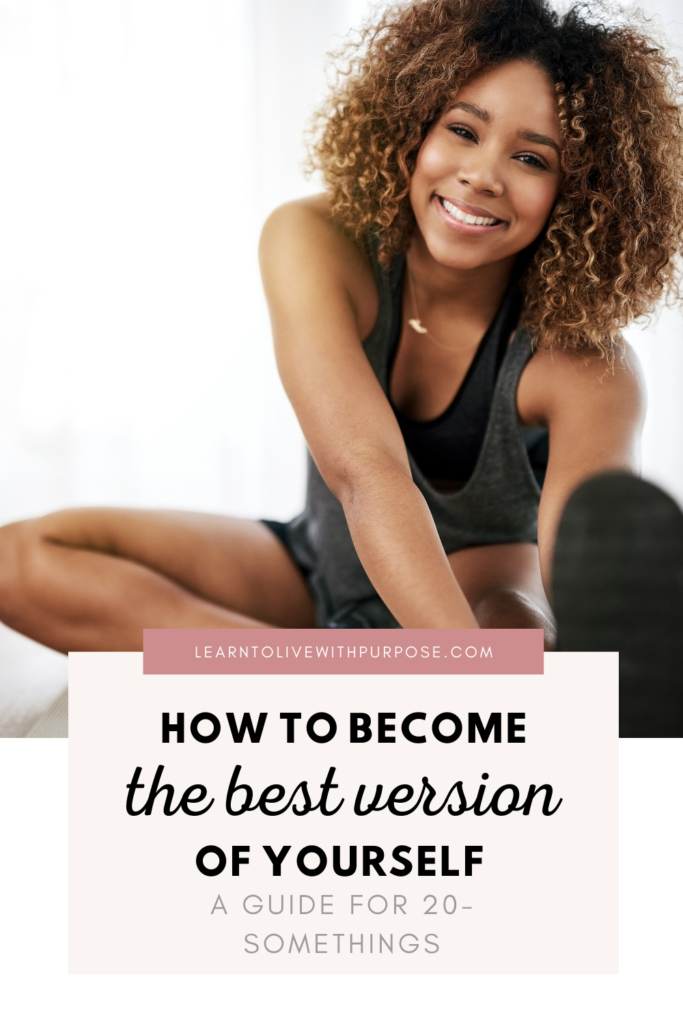
Related Blogs
How to raise your standards and live your best life
Sometimes we tend to settle for less than what we deserve in any type of relationship, be it a romantic relationship or a relationship with friends and family. 👨👩👦
It’s an unconscious habit that several people deal with every single day. The reason behind this could be your own insecurities regarding your relationship or issues with your self-esteem.
If you are in a healthy relationship with your loved ones, you will never feel that you are compromising or that your expectations are being shattered. To analyze whether you are living the life of your dreams or a compromise, look around yourself.
Ask yourself these questions:
👉Is this where I want to be in my life?
👉Is this the life that I always wanted to build for myself?
👉Am I working towards building a great life for myself?
If your answer to these questions is no, then you’re not leading a passionate and fulfilling life. Make it your life’s motto to not settle for less than what you deserve in terms of your career and your relationships.
If you do not realize your full potential in life, then you’re settling for the better part of it. It might be hard to admit this habit at first, but when you do, it’s time to take the following measures to stop settling for less in your life.
15 Ways To Stop Settling For Less Than What You Deserve In Life
1. Set Boundaries In Your Relationships
If you feel that your family, friends, or romantic partner might be hurting your self-esteem or constantly impacting your life in a negative way, then it’s time to set some boundaries. 🙅♀️ But, again, it is imperative that you be assertive about what you’re okay with and what you aren’t.
To be treated well, you need to make your loved ones understand your boundaries and figure out whether they’re willing to make the requisite changes or not. Ultimately, if your guts tell you that you aren’t being treated well or accepted, then it’s time to move on from that relationship.

2. Stop Being A Pushover
When you’re so desperate to get accepted and appreciated in your friend circle, it is easy to resort to being a pushover. However, any relationship, be it a friendship or a romantic one, works only if both the people involved put 100% of their effort in it.
No one needs half-assed relationships. 💁♀️
Therefore, if you get the feeling that you’re the only one who’s putting in the majority of hard work, then think of it as a sign that you’re probably around the wrong person.
It’s better to find someone else who would appreciate your time and efforts and be willing to provide you with the same level of commitment.
3. Stop Making Excuses For Someone’s Poor Behaviour
If you want to learn how to stop settling in life, you must stop making excuses for anybody’s poor behavior. If you find yourself frequently making excuses for a close friend or family member, then it’s time to bid goodbye to this habit.
In the long run, this habit can affect your peace of mind and make your relationship with that person toxic.
Peace of mind >>> Having someone you don’t need in your life 🤷♀️
Instead of making excuses for your loved ones, try to have a chat with them about what hurts you about their behavior.
If that person invalidates your feelings instead of appreciating them, it’s probably because you’ve been settling for less than what you deserve.

4. Don’t Think Of Being Alone As An Abandonment
If you find yourself alone in certain situations, it doesn’t mean that your loved ones have abandoned you or that something is wrong with you. 😬
Instead, you must learn how to be alone with yourself without being burdened by lousy friendships or other relationships.
This will not only teach you to be independent in life but also boost your self-esteem in the long run. Being comfortable with who you are is one of the first steps you must take if you want to stop settling for less in your life.
RELATED: Ready to get out of your comfort zone and experience the life you know you deserve? Yes!? Then this is the mini-course for you 👇

5. Express Your Hopes, Desires, And Expectations
You can’t expect the people around you to treat you the way you want them to if you don’t fully communicate your hopes, desires, and expectations to them.
So get into the habit of telling your loved ones what you desire, whether big or small. Talk about any inconveniences you’re facing and how you’d love for the people around you to support you through such situations.
No one can read your mind, make it known! 🗣️
6. If You Don’t Like Something, Then Don’t Agree With It.
If you want to stop settling for less in life, then you need to break the cycle of saying yes to anything and everything.
When you continue to say yes to doing things or accepting things that you don’t personally agree with, you start to build a life that is no longer on your terms which will eventually damage the relationship you have with yourself. 🙁
To break this habit, whenever somebody asks you to perform a certain task, take a slight pause and ask yourself if this is something you really want to do.
If the answer to this question is a yes, you can go ahead with the task, and if it is a no, you must say it out loud.

7. Invest Your Time And Money In Self-Care
The biggest lesson in this guide is how to stop settling in life; you need to realize your self-worth and value the same. To get out of negative situations, you must practice self-love and do more than just the bare minimum for your body, mind, and soul.
The relationship that one has with themselves is the most important and the most nurturing one. 💕
Therefore, investing your time and money into caring for yourself will indeed be a turning point in your journey in life.
To do this, you can invest in a healthy skincare routine, do regular meditations for your peace of mind, pay attention to your nutritional requirements, etc. 🥗
8. Relive Your Hobbies And Passion
When you get into the habit of settling for less in life for a long time, your personal interests, hobbies, and passion can take a back seat in life.
It’s time to change that. 💁♀️
To overcome this, sit down and note the things you’re passionate about. Look at your current daily routine and see where you can fit at least one passion a week into your schedule.

9. Say Your Feelings Out Loud
If you’ve been hurting for a long time, you might have developed invisible walls around you that stop you from communicating your feelings out loud.
To overcome this, you need to build a cycle of healthy communication with your loved ones and tell them what’s hurting you.
Sometimes we all end up settling for less in life when we do not attempt to correct the hurtful comments or behavior of the people around us.
Therefore, you must make your voice and feelings heard and then make the necessary decisions based on how the people around you accept those feelings. 🤷♀️
Wrapping Up – How to stop settling for less than you deserve
Our emotional barriers and low self-esteem can sometimes make us undervalue ourselves. Therefore, you need to understand the difference between what you’re getting and what you deserve to stop settling for less in life.
You will have to pay attention to your needs and demands and be willing and courageous to walk away if those demands can’t be fulfilled. 🤷♀️
I hope that the above guide on how to stop settling in life helps fuel your journey towards self-healing and promotes building a healthy relationship with your loved ones and yourself.
Pin this post for a reminder 📌 👇
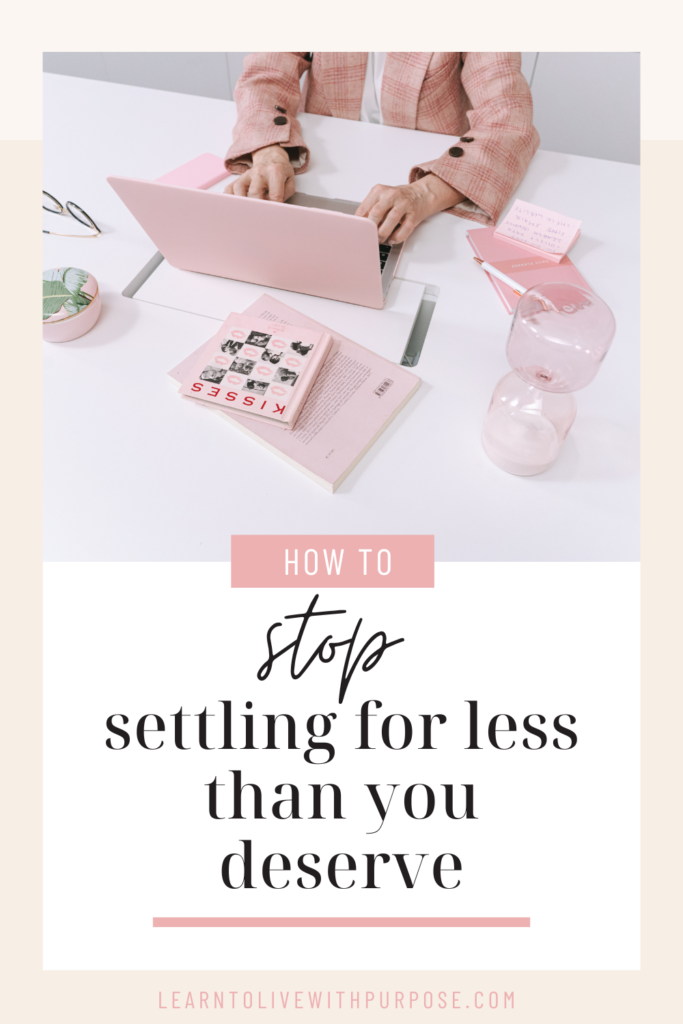
Related Blogs
How to overcome your fear and get what you want
Do you ever wonder what it takes to achieve success? Many successful people share similar daily habits and routines that are integral to their success.
Having a daily routine can make us feel more in control of our lives and allows us to make time for the things that really important. People who tend to “wing” their day because they have no schedule to adhere to usually feel stressed, overwhelmed and uneasy.
No two people are the same and the habits of successful people are a mixed bag but there are some consistencies across the board and it’s those habits that are going to help you live a successful and fulfilled life.
Packing your day with these 10 daily habits will help you be more productive, feel more in control and put you on the right track on living your version of success.
“We are what we repeatedly do”
Now let’s get into the top 10 daily habits of successful people. 😊
This post contains affiliate links. Read my full disclosure policy here.
1. They wake up early
Waking up early gives you more time to work on yourself and your goals. When you’re picking the right time to wake up in the morning you have to factor in your current activities in both your personal life and professional life E.g. if you’re a constant flyer who is always jet-lagged, you’re going to find it extremely hard to consistently wake up at the same early hour every day. 😧
In order to wake up ready to go and take on the day it takes more than just setting an alarm and praying that your finger isn’t going to press the snooze button.
When you wake up every day at the same time your body becomes conditioned to that time and regulates your sleep patterns accordingly. Your body will actually start waking up before your alarm sounds off!
Here’s a couple of ideas to think about in order to make waking up earlier that little bit easier:
👉 Don’t make a drastic change in time at the beginning
If you usually wake up at 10am and you want to start waking up at 4:45am trying to do that straight away instead of cutting back gradually is setting yourself up for failure. Start slowly by putting your alarm 15-30 minutes earlier for a couple of days until you reach your goal time.

👉 Put your alarm clock far away from you
By far away I don’t mean out the room where you can’t hear it 😂 just put it far enough where you have to walk in order to turn it off, and if you share your bed with someone you could be more likely to run or walk briskly which is even better at keeping you awake. Once you’re up, stay up!
👉 Go to bed earlier
If you’re used to going bed late then you have to break that habit by entering a “wind-down” routine even when you don’t feel tired. Try reading, yoga or meditating to get you in a calm and relaxing state. Don’t forget that your general physical fitness greatly impacts your sleeping habits.
Tom Corley an Accountant and Financial Planner surveyed 233 wealthy individuals, mostly self-made millionaires about their daily habits.
Nearly 50% of the self-made millionaires in Corley’s research got out of bed at least 3 hours before their workday actually started. Many of them used this extra time to work on their own personal projects or exercise.
There is no better feeling than knowing everything you need to do for the day is already done because you accomplished everything you needed to do in those extra hours in the morning.
2. They plan their day
The first step of planning your day is to clearly define what you want to get out of it.
It’s best to plan your day the night before (preferably part of your evening routine) so you wake up knowing exactly what you have to do without any faff!
Nothing worse than waking up and going about your day to realise you haven’t done anything that you told yourself you would do.
Get organised!
Get yourself a planner and WRITE STUFF DOWN. Your brain has no interest in trying to remember everything you said over the past 24 hours. Your success is dependent on what you manage to get done day in and day out.
Imagine what you could achieve if you plan your day with only high leverage activities with no time-wasting whatsoever.
If you actually follow through with your daily plans not only will you hit your goals in a timely manner, you’ll achieve your version of success much faster.
RELATED: Ready to start planning out your day properly? Then check out the Goals & Planners Printable Bundle
3. They eat healthily and exercise
How many times has the thought “I’ll do it tomorrow” crossed your mind when it comes to eating healthy and exercising?
Probably more than a 100 times right? 😂
Having healthy habits such as eating healthily and exercising help your overall wellbeing and make you look and feel good.
These habits are hard to develop without changing your mindset first, but if you’re willing to make sacrifices to better your health the impact will be significant regardless of your age or physical ability.

4. They focus on high-leverage activities
High-leverage activities get you the results you need more effectively (less expenditure of time, money or energy).
It doesn’t matter how productive you think you are if you’re not producing results. Don’t waste your time it’s your most valuable asset.
Focusing on the activities in your day that produce the most valuable results will set you up for success.
Staying focused isn’t something that comes naturally to a lot of us, it requires a lot of willpower that must be practiced.
If you lack the discipline to control your focus eventually distractions will consume your precious time.
This point definitely had to be in my list of daily habits for successful people because you can be the most time-efficient, organised person in the world but if you’re not focusing on the right activities that are going to get you closer to your goals, you’re going to suffer.
Progression = Happiness ❤️
RELATED: Learn what your high-leverage activities are by gaining clarity on what you want out of your life by using our PERSONAL GROWTH BUNDLE
5. They surround themselves with positive people
Surrounding yourself with positive people with positive outlooks will create a better influence in your life. Think about the people who you spend the most time with and write down their qualities.
Are they lighting your fire or dowsing your flame? Think about how you feel when you are around them.
🤔 Do they support you and help you reach your goals?
🤔 Do they make you feel full of life when you’re with them?
🤔 Can you turn to them when you feel down?
🤔 Do you feel happy when you see their name pop up on your phone?
If you’re able to respond yes to the above questions, you’re probably surrounded by the people you need to be.
6. They Invest in self-care
It’s easy to push aside self-care in our busy lives or not make it a high priority. Self-care is any action or behaviour that individuals take for themselves to protect, maintain and improve their health and wellbeing.
Taking care of yourself daily is essential, it allows you to become the best version of yourself and therefore be better for the people around you. Here’s a list of daily self-care activities to consider for optimal performance:
✨ Exercise/Yoga
✨ Develop Morning, Afternoon & Evening routines
✨ Make sure you get enough sleep
✨ De-clutter
✨ Have a pamper day
✨ Laugh often
✨ Express gratitude
✨ Meditate

7. They never stop reading
You should never stop gaining knowledge, everything you read fills your head with new bits of information that can make you better equipped to tackle challenges.
Reading also improves your focus and concentration. The average person in a 5-minute time span will divide their time between texting, checking emails, scrolling through social media and interacting with people around them. 🤯
This lack of concentration causes stress levels to rise and definitely lowers your productivity. However, submerging yourself into a great book shuts off the outside world, only you and the book exists. Bliss. 😌
Heather’s Top Tip: You can’t remain at the same level of knowledge you have right now and expect your life to elevate to the next stage. Immerse yourself in books that are going to help you grow in the areas of your life that you wish to improve.
8. They look at their goals
Vividly describing your goals in written form is strongly associated with goal success.
Look at your goals every day, they are an important part of your life. Reminding yourself of your daily goals is an integral part of any successful routine because it allows us to analyse where we stand on a day-to-day basis.
Long-term goals are reinforced by our daily goals and milestones, which push us closer to our dreams. Take your time to reflect and adjust your daily goals accordingly to make sure that you’re still on track.
Get those goals down!

9. They laugh Often
Inevitably things are going to go wrong in life that there’s nothing you can do about. It’s your choice whether you dwell in misery or find the humour/positivity in situations.
Learn to laugh at yourself and not take things too seriously. 😂
The positive feeling you get after laughing remains with you even after the laughter subsides, and don’t forget that laughter is 100% contagious, just hearing someone laugh (especially if it’s a really weird laugh) readies your brain to smile and join in on the fun.
Yes, take things seriously when they need to be serious, but don’t miss out on the tiny joys in life. You’ll regret it.
10. They exercise positive self-talk
Every day is a fresh start, and everyday you should start off with a self-talk to remind yourself to “boss” the day.
Self-talk in the most powerful form of communication as it can either empower you or defeat you internally.
What you say to yourself determines how you feel about yourself. Imagine looking at yourself in the mirror repeatedly saying positive things about yourself and positive thoughts for the day.
You won’t be able to help but smile or even possibly laugh which I’m definitely guilty of (whenever I smile to myself I always end up laughing for some odd reason).
You’ll feel a sense of empowerment and confidence that you’re ready to take on the world, and that’s because you can. 💪
I really hope you enjoyed reading these 10 daily habits of successful people! Let me know in the comments which ones you do. (I’m very intrigued)
Pin this post for a reminder 📌 👇

Related Blogs
How to find and live your purpose in life
Did you know that people on my email list sometimes get exclusive discounts on my products? Join the community and save yourself some coins!
Freshly-squeezed inspiration, and no-nonsense tips + tricks to improve your life delivered to your inbox weekly.
Subscribe to my newsletter
Subscribe
You're all signed up!
Be sure to whitelist our email address so that all the goodies make it to your inbox.







